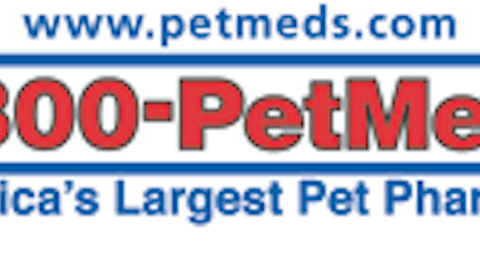
So let’s look at the top retailer of pet products and services, a supplier of pet medications, and a developer of animal health medications that aid both household pets and livestock. It seems all these companies are profiting from the increased humanization of pets.
Key drivers
We only need to consider one key driver: Americans love their pets. In the last ten years a new term has been coined to recognize how valued pets are, particularly dogs and cats, as members of the family — Pet Parents. These consumers of pet products and services are vitally concerned about the health, welfare, and happiness of their pets.
They are buying premium dog and cat food with better nutritional elements than the pet food sold in the grocery stores. They take their pets for regular health checkups and are willing to foot the bill for whatever treatments the vet recommends.
In the depths of the Great Recession I skipped my own annual physical so my Irish Setter “Rose” could have hers. I thought of it as my Fido-ciary Duty. The American Pet Products Association reports that industry sales grew from $43 billion in 2008 to $53 billion in 2012.
The retail leader
The sales and market share champion of the specialty pet products retail industry is PetSmart, Inc. (NASDAQ:PETM), based in Phoenix, Arizona. Currently the company has more than 43% of the pet store market, according to IBISWorld. The next highest share is owned by privately held Petco, with around 20%. In 2008 PetSmart, Inc. (NASDAQ:PETM)’s share was 39% — so during tough times it was able to pull customers away from its competitors.
Beyond these top dogs, the remainder of the 13,000 pet stores in the U.S. are mostly little pups. Less than 8% of them have in excess of 20 employees. PetSmart, Inc. (NASDAQ:PETM)’s scale advantage allows it to purchase larger wholesale quantities of popular brands and premium foods at lower prices than smaller stores.
Its most formidable competition are the grocery store chains and mass merchandisers. The CEO of one retail giant told a group of analysts back in 2008 that the company was making the sales of pet products a key part of its strategy to get through the recession. The huge retailers have one major disadvantage to PetSmart, Inc. (NASDAQ:PETM): they generally do not carry premium pet food brands. PetSmart also offers services that these retailers can’t match, including pet boarding, day care, grooming, and in-store veterinary services.
In late May, PetSmart, Inc. (NASDAQ:PETM) released its first quarter results. Total sales were up 5% and EPS rose an impressive 15%. The company invested $35 million in capital expenditures and repurchased $180 million of its stock, and still had $324 million in cash at quarter’s end.
A medication retailer that found the cure for a slump
Its phone number is embedded in our consciousness: 1-800-PetMeds. Petmed Express Inc (NASDAQ:PETS) markets prescription and non-prescription drugs for dog and cats. It offers customers convenience by giving them the ability to order online or on the phone. It also provides good prices and delivers products promptly.




